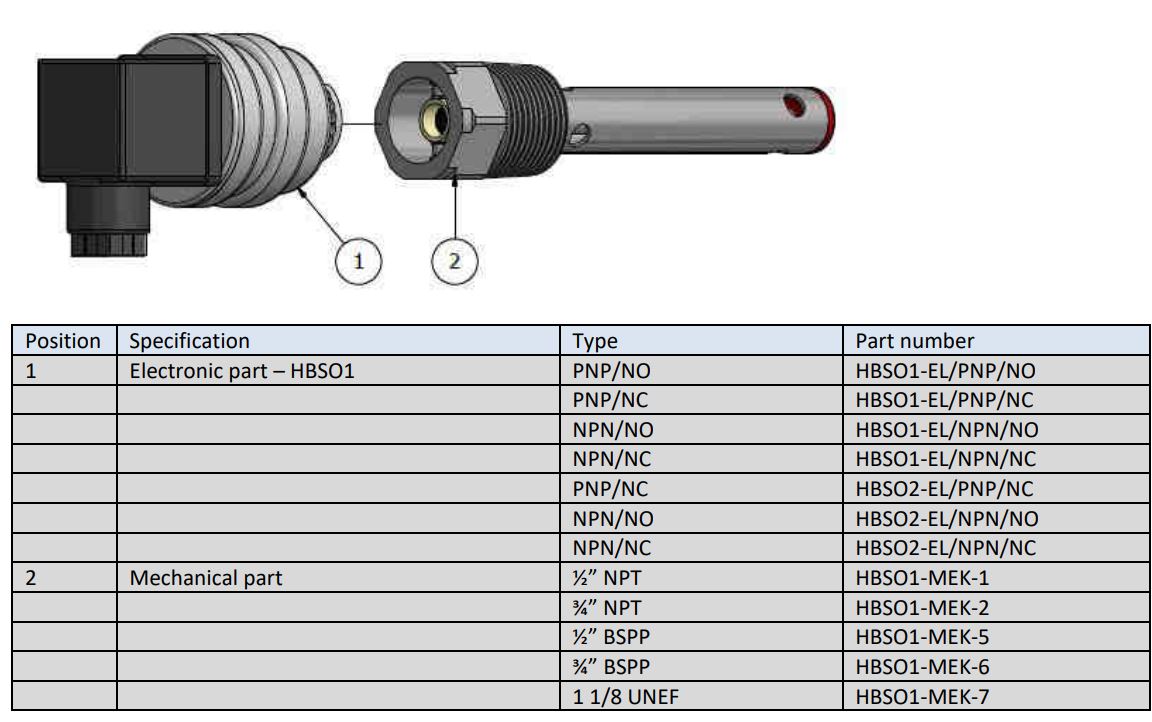HB Products HBSO - Oil Level Switch Instruction
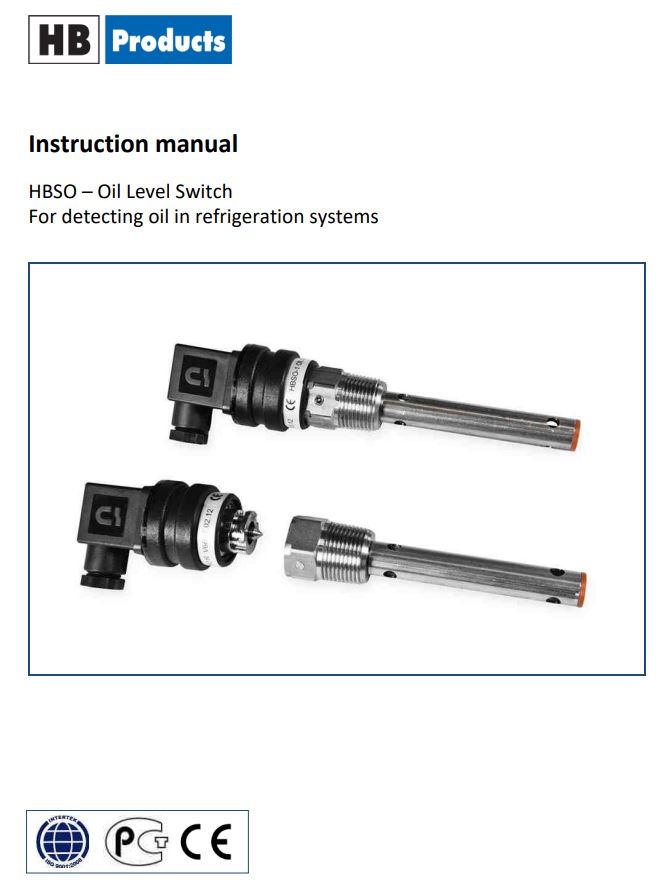
Introduction
HBSO1/HBSO2 is a level switch for detecting common lubricating oils in refrigeration systems.
Typically it is installed in/on the compressor and the oil separator, but it is also suited for installation in other locations in the oil system.
The sensor’s measurement principle makes it unique for these purposes, since the properties of the measurement principle allows it, among other things, to detect oil without detecting refrigerant.
It is calibrated so that it is unaffected by oil spray and only allows a small amount of foam.
Measurement principle
The sensor is a capacitive sensor. The capacitive measurement principle is based on the electrical properties in the proximity of a capacitor. A capacitor is an electrical component that is capable of building and sustaining an electrical charge.
Principally, a capacitor consists of two plates. When a charge is applied to a plate, the other plate will be charged with the opposite polarity and retain the charge until it has been grounded. The magnitude of the charge (the capacitance) that can be generated depends, among other things, on what is found between the plates. The substance between the plates is referred to as a dielectric.
Rather than two plates, the sensor for level measurement is shaped as a cylindrical rod. When liquid covers the sensor, the measured capacity is changes.
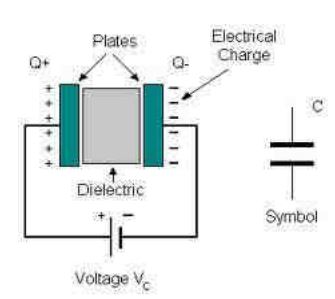 The conductivity of a material can vary depending on temperature, chemical composition, and the homogeneity of the material, and therefore it can in some cases require a different factory calibration.
The conductivity of a material can vary depending on temperature, chemical composition, and the homogeneity of the material, and therefore it can in some cases require a different factory calibration.
HB Products sensors are calibrated so that they differentiate between conductive and non-conductive liquids. In refrigeration systems, the oil, HFC’s and liquid CO2 are not regarded as conductive fluids, whereas refrigerants such as ammonia and brine are regarded as conductive.
Design
The sensor consists of a mechanical part and an electronic part. These are easily separated by loosening 2 grub screws, or for mechanisms with mounting tabs, by pressing the electronic part in towards the mechanical part and turning the housing counter-clockwise until a wave washer pushes it from the mounted position. The electronic part is designed in accordance with IP65 waterproof rating and so as to withstand vibrations. The mechanical part is produced in AISI304/PTFE and tested to withstand high pressure.
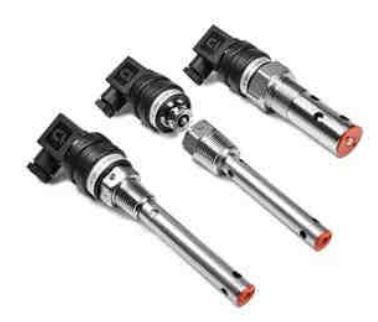
Technical data
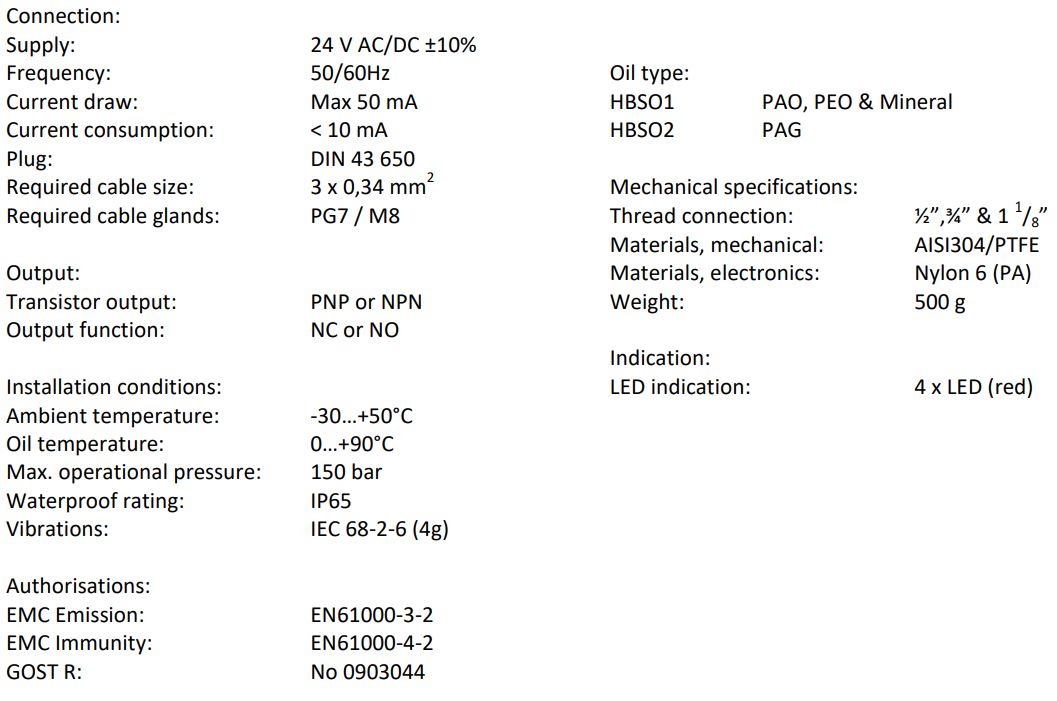
![]() Please note! All terminals are protected against improper termination with a supply voltage up to 40 V. If the supply voltage is greater than 40 V the electronics will be damaged.
Please note! All terminals are protected against improper termination with a supply voltage up to 40 V. If the supply voltage is greater than 40 V the electronics will be damaged.
Please note! Supply Voltage may differ from the data given in the manuals. Applicable will always be the sensor label.
Function
HBSO is a level switch for detecting PAO, PAG & PEO lubricating oils in refrigeration systems. Typically, it is installed in/on the compressor and the oil separator, but it is also suited for installation in other locations in the oil system.
Examples of usage
HBSO is intended for use in refrigeration systems, including Screw and piston compressors, as
- level alarm for low oil levels for protecting against damage
- ensuring that there is oil during start-up and operation Oil separators
- to indicate min/max level so as to be able to regulate accordingly Oil pipe system
- as an indication of oil flow
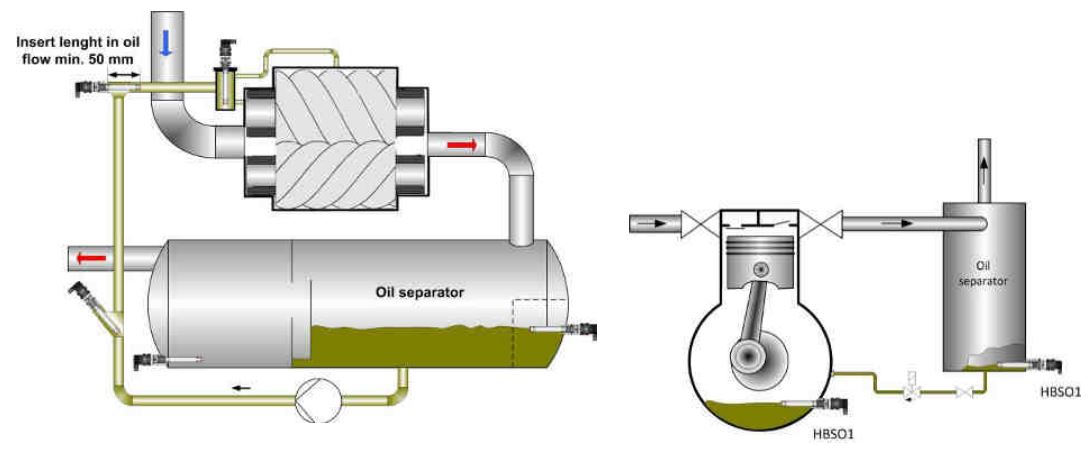
Spare parts
